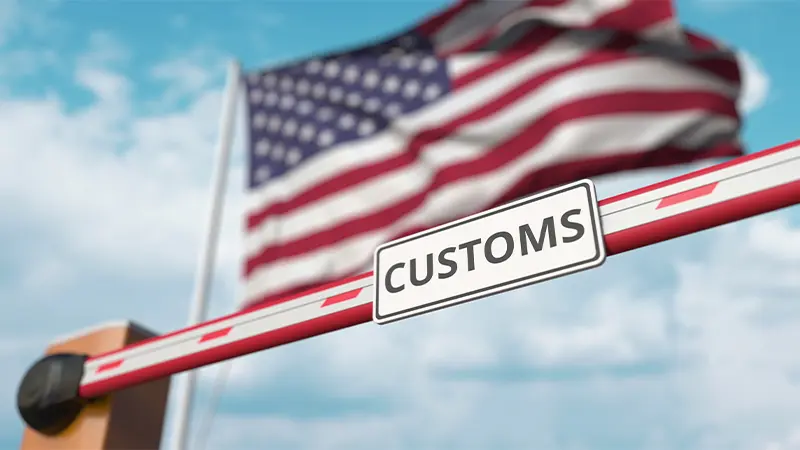Navigating U.S. Customs Duties: A 2025 Guide for European Retailers

Expanding into the U.S. market presents significant opportunities for European retailers, but navigating customs duties remains a critical challenge, especially with the evolving policies of the new administration. Recent changes in U.S. tariff policies and customs regulations have made it crucial for retailers to stay informed and compliant.
Trade Duty Refund has compiled a practical guide to help European retailers ensure smooth shipping operations and avoid unnecessary costs.
1. Consult Experts on U.S. Tariff Changes
The U.S. has recently implemented significant tariff updates impacting Europe. Ongoing trade disputes between the U.S. and the European Union have led to fluctuating tariff rates on key goods such as luxury items, food products, and industrial materials.
Retailers can consult the U.S. International Trade Commission website for the latest updates to the Harmonized Tariff Schedule (HTS). However, customs brokers are better equipped to understand these changing regulations and their specific impact on your business.
2. Leverage De Minimis Thresholds
The de minimis threshold remains a constant advantage for U.S. customs. As of 2025, goods valued at $800 or less are exempt from duties and taxes upon import. This threshold benefits European e-commerce businesses shipping small parcels, especially with the rise of direct-to-consumer models.
Given the increasing scrutiny from U.S. Customs and Border Protection, it’s essential to declare accurate values to avoid penalties. Customs brokers can facilitate imports by filing the proper documentation, helping businesses streamline the process and avoid fines.
3. Understand Country of Origin Requirements
The U.S. has tightened its rules on country-of-origin labeling. Products must clearly indicate their manufacturing origin to comply with Customs and Border Protection standards. For retailers importing goods made from materials sourced in multiple countries, understanding “substantial transformation” rules is crucial.
For example, a handbag assembled in Italy from French leather must be labeled “Made in Italy” if Italy is where the product underwent its most significant transformation.
4. Streamline Customs Clearance with Accurate Documentation
Proper documentation is essential for compliance with evolving customs policies. Common documents required include:
- Commercial invoice specifying product details, value, and terms of sale
- Packing List
- Certificate of Origin verifying where the goods were manufactured
- Entry Summary (CBP Form 7501)
Maintain thorough records to ensure faster customs processing and minimize the risk of errors.
5. Use a Customs Broker for Complex Shipments
The U.S. customs landscape has become increasingly complex with recent policy updates. Partnering with a licensed customs broker simplifies the process, especially for high-value or restricted goods. Brokers stay updated on tariff changes and ensure compliance with all regulatory requirements, reducing the risk of delays or fines.
6. Monitor and Prepare for Trade Policy Shifts
U.S. trade policy continues to evolve with global economic shifts. European retailers should remain proactive by subscribing to updates from CBP, trade organizations, and customs authorities to anticipate changes that could affect their supply chains.
European retailers shipping to the U.S. face an increasingly complex customs environment, marked by fluctuating tariffs, stricter enforcement, and new compliance requirements. In 2023 alone, the U.S. imported over $700 billion worth of goods from Europe, making it one of the largest trade relationships globally.
To successfully navigate this competitive and regulated market, partnering with a licensed customs broker is highly recommended. Customs brokers are experts in managing the intricacies of U.S. customs regulations, ensuring accurate documentation, and staying ahead of policy changes. By working with a trusted broker, retailers can avoid costly errors, reduce delays, and capitalize on the enormous opportunities the U.S. market offers.
Trade Duty Refund has a specialized team of brokers based in Europe with expertise in importing to the U.S. market. Schedule a free discovery call to learn more!
